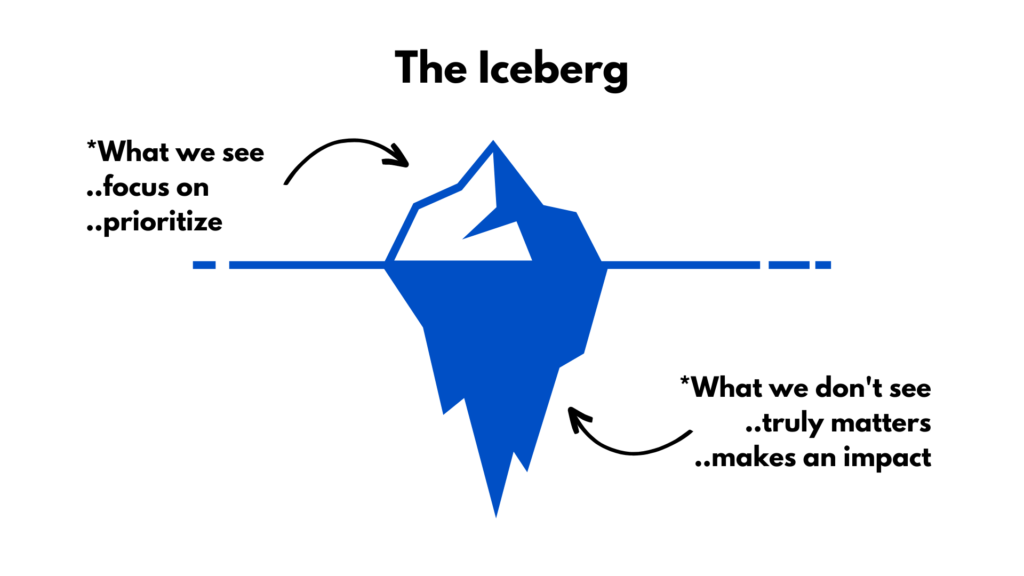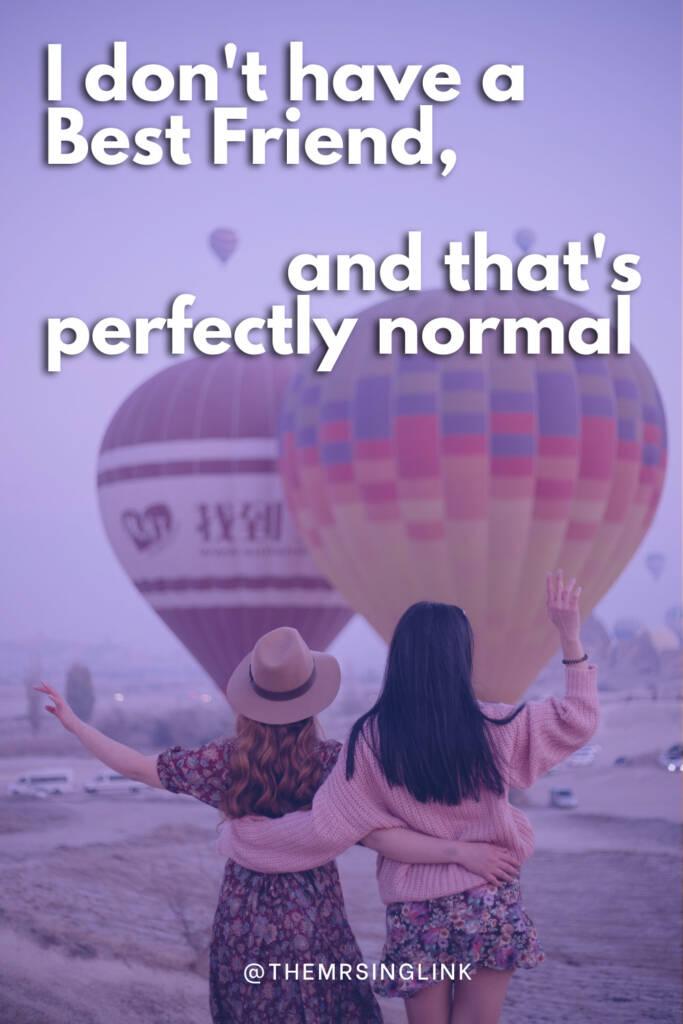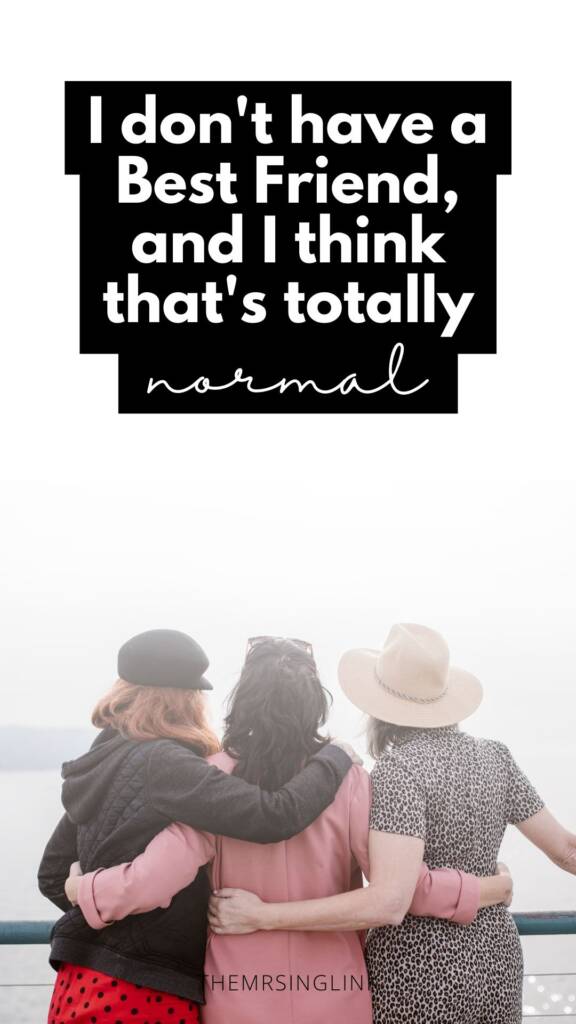I think it’s perfectly normal not to have a “best friend” these days. Personally, I also think having a best friend has even become idolized in our world and in this life. YEEET. Although, society [the collective] and some psychologists (depending on which side of the pendulum) would probably disagree. In a glamorized world, the “Best Friend” or Bestie thing is [still] like a rite of passage or a social “status” indicator, especially among [young] women.
Otherwise, I can only imagine the question tends to fall on one’s character. What do we typically assume about women who don’t have a Best Friend, or have few friends at all? That she’s unlikeable – something’s “wrong” with/about her. We may not necessarily judge, but we surely contest.
Nonetheless, I’m an adult without a best friend for some time now, and I’m sick and tired of being conditioned to [automatically] believe *this* somehow, consequently makes me “abnormal”, *faulty* or inadequate in some way. Besides, I think the title of having a “Best Friend” is overrated, anyway.
Sure, are people out there going to think I’m just *envious* for not having one? Absolutely, but this only points out the envy residing in them as well. No one’s innocent, here.
And, yet, not having a best friend – since about early college era – has only opened my eyes and *really* taught me a lot about friendships. Also while sitting in the thick of having far and few friends at this point in my life. In fact, my understanding of true connection through friendship has done a complete 180 because of this, which has cost me in none other than….yup, more friends. In doing so, I’ve unpacked a lot of my own *stuff* – you know, everything beneath the tip of the iceberg. We really fail to view aspects of life in this way, so here’s a graphic to help.

Besides, I know I am not the only one out there experiencing a similar hardship. At this point I have God to thank, honestly, because I truly believe He’s been separating certain things from my life to teach and show me what I no longer need. And since my deeper revelation of friendship, and why they’re so complicated as adults, I often go through the battle between envying those who do have a best friend in their life and not actually needing one at all (because of what I now understand).
So if you, too, are going through this struggle – whether it be the lack of friendship or not having a “Best Friend” in your life – this post is especially for you.

I don’t have a best friend, and i think that’s perfectly normal
*Classifying* someone leaves a bad, sour taste in the mouth
In grade school, yeah, having a “Best Friend” [BF] was a major part of everyone’s social climate. You wrote it on the walls, literally. “Oh, that’s so-and-so’s Bestie.” It was as if those individuals were somehow “off limits”, also literally.
Real talk: if someone I was friends with already had a BF (that wasn’t me), I naturally didn’t advance in my connection to them, and vice versa. That’s why I look back now, as an adult, and see how distasteful the label was then…and how nothing’s really changed 10+ years later into adulthood. Women still have their cliques – they have a BF, as if no one else stands a chance in this world of filling those shoes. It’s like, “I already got a best friend – I don’t need one.“
We still classify people, and it’s merely treated as a status symbol. I’m not denying those to have close friendships, but why exactly do we outwardly label certain individuals above or apart from others? To have a best friend means this person is *more* of something to us, right? And we give this person a special title becauseeeee….? As someone who is a firm believer when it comes to *respected* labels in terms of relationships (boyfriend, girlfriend, husband, wife, etc.), that would mean the “BF” label is of monogamous nature. So its meaning carries more value, and using that label separates that person from others in some way.
For instance, I’m a married woman, which means I earned the title of “Wife”, and my husband earned the title of “Husband”. Yet the best friend title is treated more loosely, even though the title holds fairly high expectations. So what’s the point?
Therefore I don’t find it abnormal at all to denounce using the BF title if it’s proven unnecessary.
[pt_view id=”aafdd82yx5″]
The title is often used in all the wrong ways
I could say the title is often abused, but that might rub some people the wrong way. Let’s just say we use it in all the wrong ways. For instance, “Best Friend” titles are often viewed as Relationship Titles. The classification among Best Friendships is obviously and most commonly mutual, similar to feelings and exclusivity in relationships.
You didn’t label someone in grade school as a BF if they didn’t feel the same way about you. Now as adults, having a BF is treated the same way but on the outside viewed as “all in good fun”. I think utilizing the title secrectly makes us “feel better” that, “See, I have a BF – *pat my own back*.” So how would you feel if your BF classified someone else as theirs, in addition to or not you? Would this change anything for you, about the friendship, or your connection to them?
And for those who will say it: people can have multiple best friends. Uhh, exactly my point, but I’ll get there. With that, just because you value someone as a BF doesn’t mean they have to value you as one. Relationship titles would never work this way. The BF title is used to personally, mutually, and low-key publicly acknowledge, establish, and differentiate your connection to someone from others. The title might even low-key mean, “Hey, because I considered you my BF, I expect to be valued and treated the same.“
The same way my husband’s title (of husband) differentiates him from others, particularly other men. The fact of the matter is, my husband is essentially my BF – he embodies every component of not only husband, and partner, but a friend. And realistically no one can or should mimic, match or surpass our connection. But, again, we’re married.
So when it comes to our “other” friendship(s), if they are not glorified with the Best Friend title, does that somehow make them less important, worthy, or valuable? Our actions surely prove that, because when we have a BF in our life that person usually supersedes others, and it’s justified.
Unfortunately, friendships these days are some of the most difficult connections to make yet the easiest to abandon and walk away from, regardless of title. But there’s something specific that separates a best friend from the “regular Joes”, and I find that it’s this: we hold a BF to a higher standard yet expect less of the others.
That logic is also applied in our relationships, where we hold our partner to a higher degree. This is why I believe it’s perfectly normal to want to do without the title of “Best Friend” when friendship [SHOULD] contrasts relationships in 2 ways:
1. Friendships are a commitment [a choice], but they are not an exclusively monogamous commitment (meaning, they are not “you can only be best friends with ME, no one else – capisce?”), and
2. Because friendship is not an exclusively monogamous commitment, it is boundless (meaning, no one is tied to another).
Basically, we treat BFs as if they are under the logistics of a relationship. People can have more than one close connection. Someone you consider a close connection may find another connection (not you) closer. And we often take this personally.
Granted, I am not in support of polyamorous relationships, but friendships are not relationships. Therefore I believe friendship is polyamorous in nature. We should be able to do away with the label and simply appreciate/cherish the closeness or connections we have with someone without putting them in a specially titled box.
[mailerlite_form form_id=23]“Best Friend” means something different to everybody
Speaking of the whole making someone fit in a perfectly adorned box created for them, what a best friend means or looks like is literally going to be different for every single individual. Yes, there are obvious shared similarities, but oftentimes the whole BF thing rides on the surface of self-serving superficiality. Almost like an unspoken contract; the “I’ll scratch your back if you scratch mine”, taking the “two-way street” logic of friendship out of context.
There are a lot of unrealistic expectations we tend to focus on or prioritize – again, referring to that iceberg graphic – rather than on the aspects that truly keep a friendship grounded and thriving. We can’t seem to let go of this unrealistic, fantasized imagery of what a Best Friendship looks like, or should be, because of what we are constantly ignoring or neglecting to do: Look in the mirror.
We treat Best Friendship as a round table check-list of self-serving attributes. The focus becomes more on how this person makes me feel accompanied by what this person provides for me instead of seeing that individual as they are and loving them for not what they can offer but simply as a person outside the logistics of friendship.
10 Years ago I could have perfectly defined and described what a Best Friend meant or looked like to me. Now I am more confident in sharing what a BF is not since the idea of having one is – IMO – irrelevant to the true nature of friendships and close connections with others.
“Needing” or having a best friend only limits truly connecting with others
That’s probably a tough pill to swallow. It was for me and still is sometimes. If you aren’t sure what I mean by this, start by asking yourself what a Best Friendship and having a best friend means to you. Why is it usually only one person? Adult friendships can be difficult as is. Isn’t that a pretty big responsibility for one individual – are those not unrealistically large shoes for one person to fill?
I found that when I had a best friend, and I was confident in that friendship, I connected with others less. And deep down I want to say this was unconscious and maybe intentional. I can only chalk it up to not having the desire or willingness to. We all go through this sometimes, where we feel like we just don’t have any room left for more friends. I truly felt my BF was enough, or maybe it was that they received the bulk of me while others often nibbled on what was left. Let’s be real, my leftovers weren’t likely very genuine, authentic, or fair. It’s similar to putting all our eggs into one basket.
And for a while, in the beginning, when I didn’t have a best friend it tirelessly felt like my social lifeline (and self-worth) depended on it. I became so engrossed in finding that BF-like connection that I actually, in turn, pushed a lot of people away by creating this limitation on connecting with others. It was sort of like looking for “love at first sight” – if that “spark” or “BF connection” wasn’t initially or effortlessly there, I no longer desired to give it the time of day. This became an unhealthy pattern, and consequently, I struggled to connect with people (or made it difficult for others to connect with me).
As of lately, a few years give or take, I have found that if I remove the idea of having a best friend in my life entirely, I can focus on connecting with people on different levels and valuing those connections for what they are, whether they are superficial, long-term or seasonal.
Having a “Best Friend” does not equate to “Forever”
Nor does it guarantee it. Yet we unconsciously have it engraved that when we [finally] found that person, that true best friend, that it means without end. Hence why it often feels like failure not having one. This tells me the title is, in fact, meaningless. People change, and people grow. People outgrow people. Whether this inevitable is acceptable is up to you.
I definitely had close connections (that I considered BFs) that ended up being seasonal, or for a short phase in my life. We didn’t necessarily end on “bad terms”, but we grew apart. We drifted. And I think this can happen naturally as much as we can choose this direction little by little (and deem it “natural”).
I also had a childhood best friend for well over (accumulatively) 15 years. This was my BF of all BFs, you could say. We were total opposites in ways, yet we shared many similarities that brought and kept us close, even throughout adolescence and young adulthood. I can say I truly Loved this person then and still now, even though we haven’t had contact in almost 10 years. What drove us away? Immaturity. Stubbornness. Closed-mindedness. Clashing beliefs. Miscommunication or “Lack thereof”. Pettiness. The classics.
Part of me thinks we are blind to some of the people in our lives who we wouldn’t necessarily consider a BF, but nonetheless who have been there and are still there. Those connections aren’t any less significant! We can’t always rely on friendship connections to be beyond a certain expectancy or base whether connections are worth investing in simply because they don’t match “Best Friend” material.
It’s time to let that ideology go.

